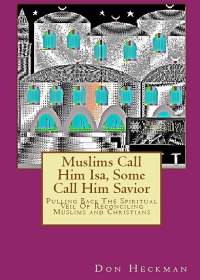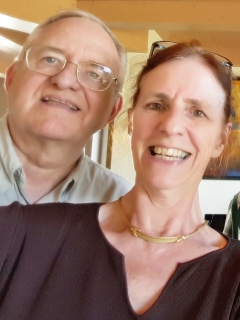Life with Muslims
On this website, you will find avenues of interest that are somewhat unique in the West, but not at all unique in the way God meets people all over the world.
Whether the website addresses issues of counseling, domestic violence prevention, the Bible in context, or even musical contrarian ideas, every page is dedicated to understanding Eastern peoples as they come to Christ.
Never before have these issues mattered so much. Neda Agha Soltan, the music student whose bloody demise in Iran was filmed and broadcast around the world was followed via Facebook and Twitter. Middle Eastern women are acting out the story of the Widow and the Judge in Luke 18. "Then Jesus told his disciples a parable to show them that they should always pray and not give up. He said: "In a certain town there was a judge who neither feared God nor cared about men. And there was a widow in that town who kept coming to him with the plea, 'Grant me justice against my adversary."
Women have an unique role in the Middle East. They are at the same time both respected in public and yet quite often mistreated in private, where abuse is usually denied. The secret in understanding Luke 18 is that "'Even though I don't fear God or care about men, yet because this widow keeps bothering me, I will see that she gets justice, so that she won't eventually wear me out with her coming!'" Literally, the judge does not fear God or men, like in the Iran revolution, but "that she won't wear me out," which means "unless she gives me bruises under my eyes," which means even more literally "unless she causes me public shame." This preaches.
Although women face discrimination in legal realms such as inheritance, custody and court testimony, they have a more visible, and more vocal, role in society and politics. It is for the reason clearly mentioned in Luke 18 and the "public shame" issue. The Iranian uprising has underscored the immense obstacles women face in the region. Yet women are undoubtedly the key to what is happening.
When Imam Khomeini first imposed edicts for veiling, women came in with such force that he had to take it back and introduce it more slowly. Now here in France, the complete veil called the "burka" is probably going to be banned, to maintain a secular state. (These are not classic Afghan burkas, but full veiling that is being banned.) Schools in France already prohibit any form of veiling by Muslim women.
The Anglo-Saxon view is laissez-faire, because "each culture should be free to choose how to live because each cultural value is valid." France says it is not a cultural but a religious value. What do you think?
Grainy cell phone video and photos of the female protesters in Iran have flooded the Internet and the blogosphere, especially the haunting images of Agha Soltan as she died. Luke 18 matters so much because today in Iran, more than 60 percent of university students are women, female lawyers, doctors, athletes and politicians. There are female taxi drivers. A woman, Shirin Ebadi, won Iran's first Nobel Peace Prize in 2003.
Is the issue in Iran and elsewhere human rights or is it culture? Is it religion or is it freedom? Whatever it is, and I suspect it is more than either of the above, Iranian women like in Luke 18 are lightning rods for life. As they pursue life, they are calling on God for more than for human rights. They want the right to live, and not the right to a living death. It is a pursuit not of democracy or human rights alone, not just a women's issue item. It is a parallel consequence of Jesus Christ breaking through into Iran and into other similar lands. It was, after all, Jesus who cared enough to tell the story of the Widow and the Judge.
Click here to download our Ministry Sampler for special partners.
Whether the website addresses issues of counseling, domestic violence prevention, the Bible in context, or even musical contrarian ideas, every page is dedicated to understanding Eastern peoples as they come to Christ.
Never before have these issues mattered so much. Neda Agha Soltan, the music student whose bloody demise in Iran was filmed and broadcast around the world was followed via Facebook and Twitter. Middle Eastern women are acting out the story of the Widow and the Judge in Luke 18. "Then Jesus told his disciples a parable to show them that they should always pray and not give up. He said: "In a certain town there was a judge who neither feared God nor cared about men. And there was a widow in that town who kept coming to him with the plea, 'Grant me justice against my adversary."
Women have an unique role in the Middle East. They are at the same time both respected in public and yet quite often mistreated in private, where abuse is usually denied. The secret in understanding Luke 18 is that "'Even though I don't fear God or care about men, yet because this widow keeps bothering me, I will see that she gets justice, so that she won't eventually wear me out with her coming!'" Literally, the judge does not fear God or men, like in the Iran revolution, but "that she won't wear me out," which means "unless she gives me bruises under my eyes," which means even more literally "unless she causes me public shame." This preaches.
Although women face discrimination in legal realms such as inheritance, custody and court testimony, they have a more visible, and more vocal, role in society and politics. It is for the reason clearly mentioned in Luke 18 and the "public shame" issue. The Iranian uprising has underscored the immense obstacles women face in the region. Yet women are undoubtedly the key to what is happening.
When Imam Khomeini first imposed edicts for veiling, women came in with such force that he had to take it back and introduce it more slowly. Now here in France, the complete veil called the "burka" is probably going to be banned, to maintain a secular state. (These are not classic Afghan burkas, but full veiling that is being banned.) Schools in France already prohibit any form of veiling by Muslim women.
The Anglo-Saxon view is laissez-faire, because "each culture should be free to choose how to live because each cultural value is valid." France says it is not a cultural but a religious value. What do you think?
Grainy cell phone video and photos of the female protesters in Iran have flooded the Internet and the blogosphere, especially the haunting images of Agha Soltan as she died. Luke 18 matters so much because today in Iran, more than 60 percent of university students are women, female lawyers, doctors, athletes and politicians. There are female taxi drivers. A woman, Shirin Ebadi, won Iran's first Nobel Peace Prize in 2003.
Is the issue in Iran and elsewhere human rights or is it culture? Is it religion or is it freedom? Whatever it is, and I suspect it is more than either of the above, Iranian women like in Luke 18 are lightning rods for life. As they pursue life, they are calling on God for more than for human rights. They want the right to live, and not the right to a living death. It is a pursuit not of democracy or human rights alone, not just a women's issue item. It is a parallel consequence of Jesus Christ breaking through into Iran and into other similar lands. It was, after all, Jesus who cared enough to tell the story of the Widow and the Judge.
Click here to download our Ministry Sampler for special partners.



